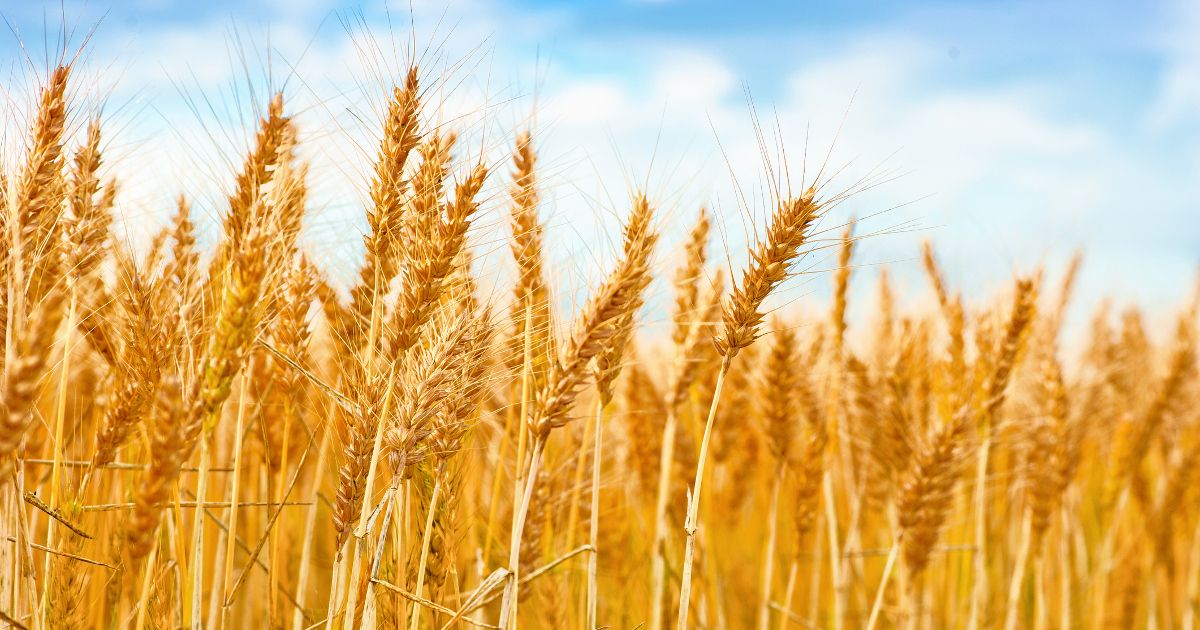
As the global population continues to grow, the demand for food is on the rise. Furthermore, the integration of state-of-the-art technology within the industry is fostering a sense of optimism. Considering this, this article sheds light on the fundamentals of three sound agricultural stocks, ICL Group Ltd (ICL), Bunge Global SA (BG), and Dole plc (DOLE), which could benefit from the industry tailwinds.
However, before we dig deeper into the fundamentals of the featured stocks, let’s take a look at a few factors shaping the prospects of this industry.
The agricultural sector plays a vital role in securing food on a global scale. As the world population continues to increase, there is mounting pressure on the agricultural industry to satisfy the expanding demand for food. According to the World Bank, the anticipated surge in global food demand is driven by the need to feed a projected global population of 9.70 billion by the year 2050.
In light of the escalating population dependent on agriculture by 2050, the widespread incorporation of technology within the sector becomes ever more critical. For instance, the adoption of smart agriculture is enabling farmers to enhance crop cultivation efficiency through the utilization of advanced technologies.
Internet of Things (IoT), Artificial Intelligence (AI), blockchain, and Machine Learning (ML) are among the technologies creating promising opportunities for the growth and advancement of the global smart agriculture market. The global smart agriculture market is anticipated to grow at a 13.4% CAGR from 2023 to 2030.
Furthermore, AI is sparking transformative changes in the agricultural sector, reshaping farming practices and related processes. The global AI in the agricultural market is anticipated to hit $11.96 billion by 2032, growing at an impressive CAGR of 23.7% from 2023 to 2032.
Overall, the strategic utilization of these technologies is anticipated to be instrumental in overcoming industry challenges and fully realizing the extensive potential of agriculture.
Meanwhile, considering the sector’s significance, governments worldwide are heavily investing to improve efficiency and cut costs. A notable example is the Biden-Harris Administration’s allocation of $266 million to support rural business owners, farmers, and ranchers in lowering energy expenses, generating income, and expanding operations.
Keeping all these factors in mind, let’s now dive deeper into the fundamentals of the featured Agriculture stocks, beginning with number three.
Stock #3: ICL Group Ltd (ICL)
Headquartered in Tel Aviv, Israel, ICL operates as a specialty minerals and chemicals company worldwide through four segments: Industrial Products; Potash; Phosphate Solutions; and Growing Solutions. It also develops and produces functional food ingredients for use in processed meat, poultry, seafood, dairy, beverage, etc.
ICL’s trailing-12-month EBITDA margin of 24.98% is 42.5% higher than the industry average of 17.54%. Likewise, its trailing-12-month levered FCF margin of 9.38% is 128.3% higher than the 4.11% industry average. Furthermore, the stock’s 19.40% trailing-12-month EBIT margin is 69.1% higher than the 11.47% industry average.
For the fiscal third quarter, which ended on September 30, 2023, ICL’s sales amounted to $1.86 billion, while its gross profit stood at $586 million. During the same period, the company’s attributable net income amounted to $137 million. In addition, its EPS and total adjusted EBITDA came in at $0.11 and $346 million, respectively.
Analysts expect ICL’s revenue and EPS for the fiscal fourth quarter (ended December 2023) to come in at $1.67 billion and $0.09, respectively. Moreover, the company topped its revenue and EPS estimates in three of the trailing four quarters, which is impressive.
ICL’s revenue has grown at a CAGR of 17.9% and 7.6% over the past three and five years, respectively. In addition, the company’s EBIT and levered FCF have improved at CAGRs of 147.2% and 182.2% over the past three years, respectively.
The stock has declined marginally intraday to close the last trading session at $4.97.
ICL’s POWR Ratings reflect this robust outlook. The stock has an overall B rating, translating to a Buy in our proprietary rating system. The POWR Ratings assess stocks by 118 different factors, each with its own weighting.
It has an A grade for Value and a B for Sentiment and Quality. In the 23-stock Agriculture industry, it is ranked #4. Click here to see ICL’s ratings for Growth, Momentum, and Stability.
Stock #2: Bunge Global SA (BG)
BG operates as an agribusiness and food company worldwide. It operates through four segments: Agribusiness; Refined and Specialty Oils; Milling; and Sugar and Bioenergy.
On October 31, 2023, BG announced a dividend of $0.66, payable to its shareholders on March 1, 2024. The company’s annual dividend of $2.65 translates to a 2.61% yield on the prevailing prices, while its four-year average dividend yield is 2.87%. Additionally, BG’s dividend payouts have grown at CAGRs of 8.8% and 6.1% over the past three and five years, respectively.
BG’s trailing-12-month Return On Total Assets (ROTA) of 7.81% is 61.6% higher than the 4.83% industry average. Likewise, the stock’s trailing-12-month asset turnover ratio of 2.45x is 193.9% higher than the industry average of 0.84x. Furthermore, its trailing-12-month cash per share of $14.85 is 770.8% higher than the $1.70 industry average.
In the fiscal third quarter, which ended on September 30, 2023, BG’s net sales amounted to $14.23 billion, while its gross profit rose 17.7% from the year-ago value to $1.05 billion.
During the same period, the company’s attributable adjusted net income amounted to $456 million and $2.99 per share, respectively. Furthermore, its cash and cash equivalents stood at $2.17 billion, up 96.8% compared to $1.10 billion as of December 31, 2022.
Analysts predict BG’s revenue and EPS for the fiscal fourth quarter (ended December 2023) to come in at $15.36 billion and $2.84, respectively. Moreover, the company has an excellent earnings surprise history, surpassing the EPS estimates in each of the trailing four quarters.
BG’s revenue grew at CAGRs of 15.7% and 5.9% over the past three and five years, respectively. Also, its net income and EPS have improved at CAGRs of 53.5% and 53.6% over the past three years, respectively.
The stock has gained 7.6% over the past six months and marginally intraday to close the last trading session at $101.50.
BG’s strong fundamentals are reflected in its POWR Ratings. It has an overall rating of B, which equates to Buy in our proprietary rating system.
It has an A grade for Growth and a B for Value. Within the same industry, it is ranked #2. Click here to see the other ratings of BG for Momentum, Stability, Sentiment, and Quality.
Stock #1: Dole plc (DOLE)
Headquartered in Dublin, Ireland, DOLE engages in sourcing, processing, marketing, and distribution of fresh fruit and vegetables worldwide. The company operates through four segments: Fresh Fruit; Diversified Fresh Produce - EMEA; Diversified Fresh Produce - Americas and ROW; and Fresh Vegetables.
On October 2, 2023, DOLE officially introduced its new specialist division, Dole Organics, and the consumer brand 'GO Organic!'. Dole Organics aims to invigorate the organic fresh produce category by fostering collaboration across sectors, consolidating the supply chain, ensuring product continuity and consistency, and implementing top-notch category management practices in stores.
Simultaneously, the 'GO Organic!' brand emphasizes a diverse selection of organic fresh produce, further enhancing DOLE’s already successful presence with its offerings of DOLE® Organic bananas and pineapples in Europe.
In terms of the trailing-12-month asset turnover ratio, DOLE’s 2.08x is 148.8% higher than the 0.84x industry average. Furthermore, the stock’s trailing-12-month cash per share of $2.29 is 34.4% higher than the $1.70 industry average.
For the fiscal third quarter, which ended on September 30, 2023, DOLE’s revenue increased 4.2% year-over-year to $2.04 billion, while its operating income rose 166.9% from the year-ago value to $77.10 million.
The company’s attributable net income amounted to $45.29 million and $0.48 per share, up 13.7% and 14.3% from the prior-year quarter, respectively. In addition, DOLE’s adjusted EBITDA improved 7.6% year-over-year to $85.20 million.
Street expects DOLE’s revenue for the fourth quarter (ended December 2023) to be $2.17 billion. Meanwhile, its consensus EPS estimate of $0.10 for the same quarter reflects a 14.8% year-over-year improvement. Additionally, the company topped its EPS estimates in each of the trailing four quarters, which is promising.
Over the past three years, DOLE’s revenue and EBITDA have increased at CAGRs of 28.8% and 44.6%, respectively. While its net income and EPS grew at CAGRs of 28.9% and 46.1% during the same period, respectively.
DOLE’s shares have surged 5.7% over the past month and marginally intraday to close the last trading session at $12.41.
Unsurprisingly, DOLE has an overall rating of A, equating to a Strong Buy in our proprietary rating system. It has an A grade for Value and a B for Growth and Sentiment. Out of 23 stocks in the same industry, it is ranked first.
In addition to the POWR Ratings we’ve stated above, we also have DOLE’s ratings for Momentum, Stability, and Quality. Get all DOLE ratings here.
What To Do Next?
43 year investment veteran, Steve Reitmeister, has just released his 2024 market outlook along with trading plan and top 11 picks for the year ahead.
BG shares were trading at $101.17 per share on Wednesday afternoon, down $0.33 (-0.33%). Year-to-date, BG has gained 0.22%, versus a -1.29% rise in the benchmark S&P 500 index during the same period.
About the Author: Anushka Mukherjee

Anushka's ultimate aim is to equip investors with essential knowledge that empowers them to make well-informed investment choices and attain sustained financial prosperity in the long run.
3 Agriculture Stocks to Watch Closely and Ride to Victory in 2024 StockNews.com





